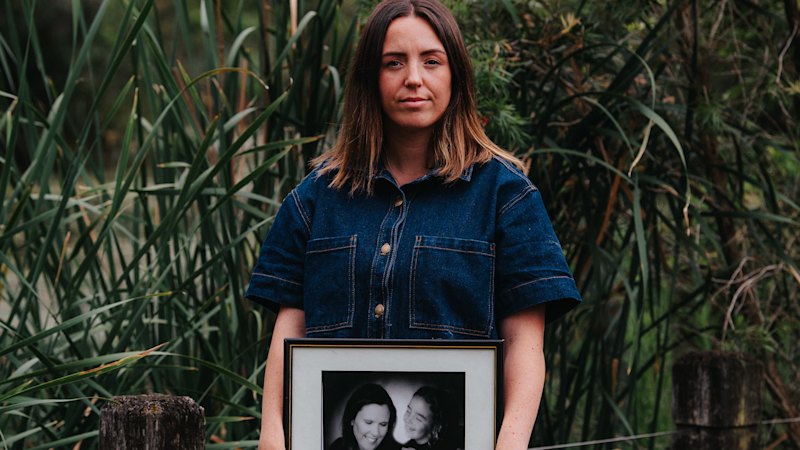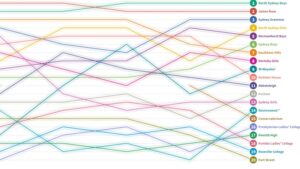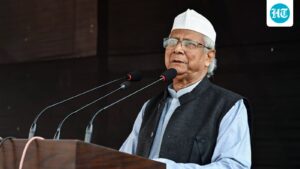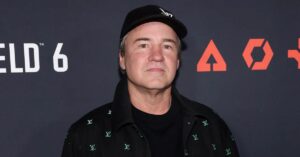
Andeau Bowley’s battle with skin cancer was a tragic one, as her condition was not caused by the sun but by a rare form of cancer that developed in the mucous membranes of her body. By the time it was discovered, it had already spread to her lymph nodes and, within months, reached her brain.
“In the end, it was 10 months,” said her daughter, Ellie. “It’s just the most aggressive form of cancer I’ve ever had experience with.” Andeau was 58 when she died in June 2024, a few months before the birth of her second grandchild. Ellie is sharing her mother’s story for the first time to encourage more Australians to check their skin at the change of every season and to catch early signs of cancers that collectively claim more than 1,000 lives each year.
“We so desperately don’t want another family to have to experience what we’ve experienced,” Ellie said. “This person who you just adore – your entire world – they’re not the person who you remember them because as soon as the tumor hit her brain, she couldn’t put a sentence together.”
The Silent Threat of Mucosal Melanoma
Andeau’s general practitioner initially suspected the pain in her rectum was a hemorrhoid. When it didn’t heal after two months, she was referred to a colorectal surgeon who diagnosed her with mucosal melanoma, a rare cancer affecting the pigment-producing cells of membranes in areas including the throat, nose, vagina, and anus.
Ellie, who studied dermal science and has worked in skincare for over a decade, had never heard of mucosal melanoma until her mother was diagnosed. It accounts for about 1% of all melanoma cases in Australia and is notably more aggressive. Fewer than one in four people diagnosed are alive after five years.
While her cancer would not have been detected in a routine skin check, Ellie emphasized the importance of regular check-ups and seeking a second opinion if something feels off. “It could have been picked up a lot earlier if she explained those symptoms that she was experiencing,” Ellie said. “Don’t just wait … if you think something’s not right, speak up.”
Tracking Progress and Raising Awareness
Unusual symptoms can be red flags in more common forms of melanoma and skin cancer. For Tamara Dawson, who was diagnosed with stage four metastatic melanoma in 2015, the first sign was abdominal pain, which a GP initially thought was a muscle strain.
“I went to have a CT scan and a biopsy, and that’s when I found out that I had melanoma that had spread to my liver,” Dawson said. “It’s on all of us to get to know our body, know our skin, but know when something’s not right.”
Dawson is now cancer-free and has since established the Melanoma and Skin Cancer Advocacy Network (MSCAN). On Wednesday, at Parliament House in Canberra, the charity will launch a new scorecard to track Australia’s progress on skin cancer prevention, early detection, and treatment. It will be updated every five years.
Challenges in Skin Cancer Prevention
Melanoma survival rates have improved dramatically in the last five years despite more people being diagnosed every year. However, mortality rates for the most common skin cancers, sometimes called keratinocyte cancers or non-melanoma skin cancers, have not improved in the same period, hovering around three deaths for every 100,000 Australians.
Because these cancers are mostly removed by GPs, it is unclear how common they are nationwide. Dawson highlighted the necessity of a national surveillance strategy.
Boosting sun-protective behavior in secondary schools, improving and tracking the availability of shade in public spaces, and encouraging organizations to schedule outdoor sports at times of the day with lower UV were all areas where Australia has made minimal progress in the last five years, the scorecard noted.
“The teenage age group is quite challenging to get the message through about sun protection,” said Professor Victoria Mar, the director of the Victorian Melanoma Service at the Alfred Hospital in Melbourne.
Skin cancer experts have repeatedly raised concerns that myths about sunscreen and the glorification of tan lines are eroding progress among a generation too young to remember the “slip, slop, slap” campaign.
“Unfortunately, there’s a lot of misinformation around sunscreens,” Mar said. “It tends to flare up every so often, and we’re going through a bit of a flare-up at the moment.”
Ellie Bowley expressed frustration at seeing many people neglect simple sun safety measures that could reduce the risk of preventable forms of cancer. “I’ve experienced first-hand what melanoma can do to someone, and I wouldn’t wish that on my worst enemy,” she said. “No tan is worth the risk of melanoma or skin cancer and what it does to the body.”
The Morning Edition newsletter is our guide to the day’s most important and interesting stories, analysis, and insights. Sign up here.






